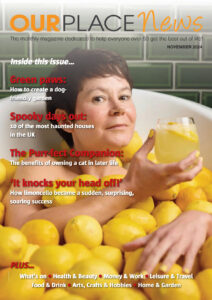I spent a large part of my day yesterday helping my elderly parents to clear out some of their over stuffed rooms ready for re-decoration and new carpets. Like most of us over the years they have managed to accumulate an enormous amount of ‘stuff’. Among the prized collections of Portmeirion and Waterford crystal there are also hundreds of mothers day gifts, birthday and Christmas presents from children and grandchildren, all lovingly given and most gratefully received over the past 7 decades.
William Morris
The “have nothing in your houses that you do not know to be useful, or believe to be beautiful” quote from William Morris is bandied about by the many anti-clutter websites offering their advice or services, and having been reminded of it by a set of coasters that I had found hidden in a cupboard, I talked to my parents about perhaps not moving all of their ‘stuff’ back into the freshly painted rooms but maybe boxing some of it up and donating it. The notion of getting rid a lot of the vast collection of china and sentimental objects was met with quite a warm response from my father, my mother however seemed quite distressed by the very mention of it (and I did wonder whether the tables would have been turned if it had been the shed or the garage that we were clearing out!).
The Art of De-Cluttering

After carrying box after box and drawer full after neatly arranged drawer full of my parents things from one room to another, I sat and did some online research. Is holding onto stuff good for our well-being, or should we de-clutter and go down the ‘less-is-more’ route? There has been much written regarding what amount of possessions might be good for the soul, for the mind or simply in order to make our homes appear more welcoming and a lot of it certainly seemed like sound advice, but unless you are moving house, or have most of your life ahead of you, none of the advice felt particularly helpful to people who, like my parents, spend quite a lot of time enjoying talking about things that happened some time in the past.
Nostalgia
Originally deemed a disease when the term was first coined in 1688 by a medical student studying the melancholy suffered by Swiss mercenaries and also documented in a diary from Captain Cooks first voyage in the 1760’s, nostalgia was seen for a long time as a very negative thing. It is now however widely accepted that nostalgia is good for our well-being as it can strengthen positive emotions and moods, raise self-esteem and can offer social connections to people vulnerable to loneliness.
Well Being
Psychology experts are advising that you feel OK about allowing yourself to hold on to those happy reminders of times gone by and by all means to resist the well intentioned calls from people advising you to get rid of things around you that may hold special significance. Nevertheless I gave my full blessing to my parents to get rid of a whole host of things that I and my children had given them over the years most especially all of the tubes of coloured sand from holidays in 1974, oh, and the delightful collection of small china animals!

